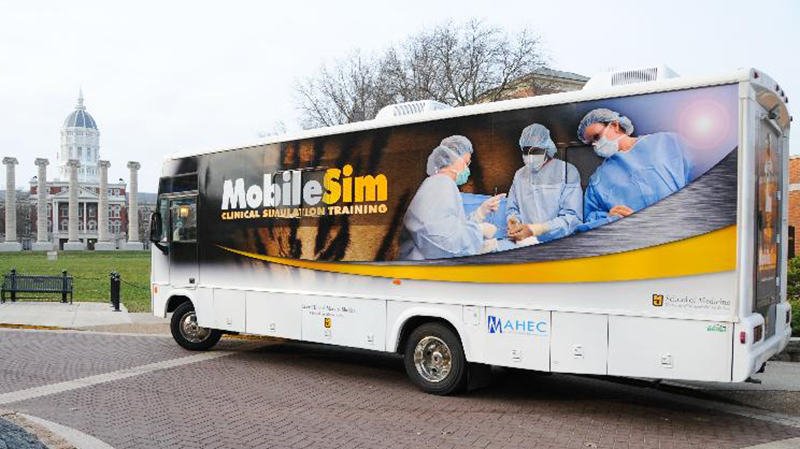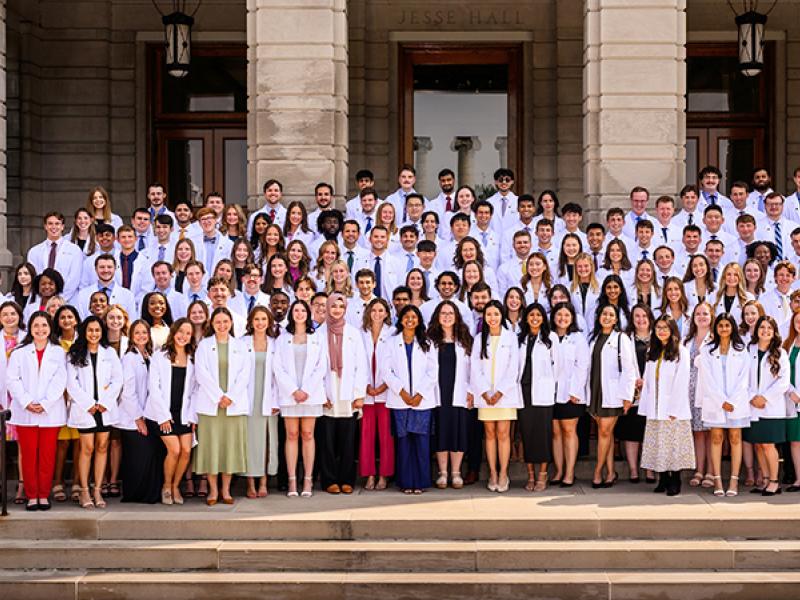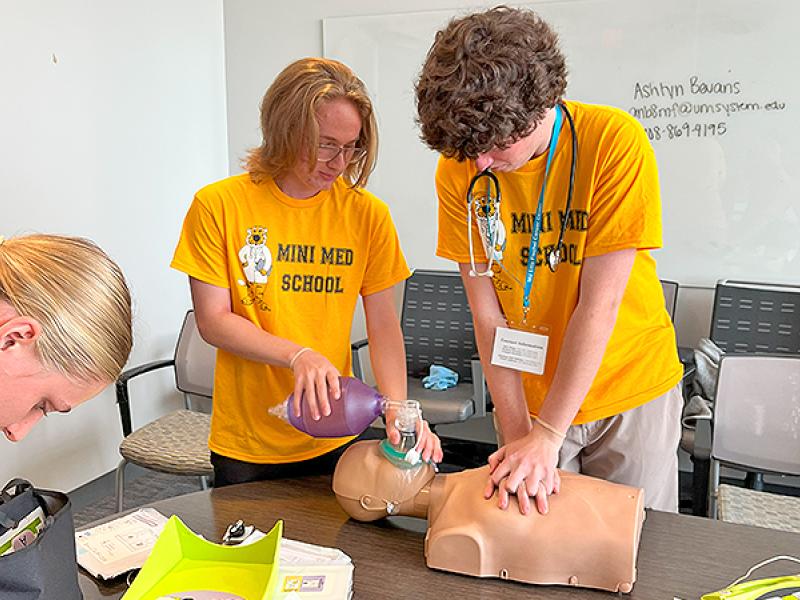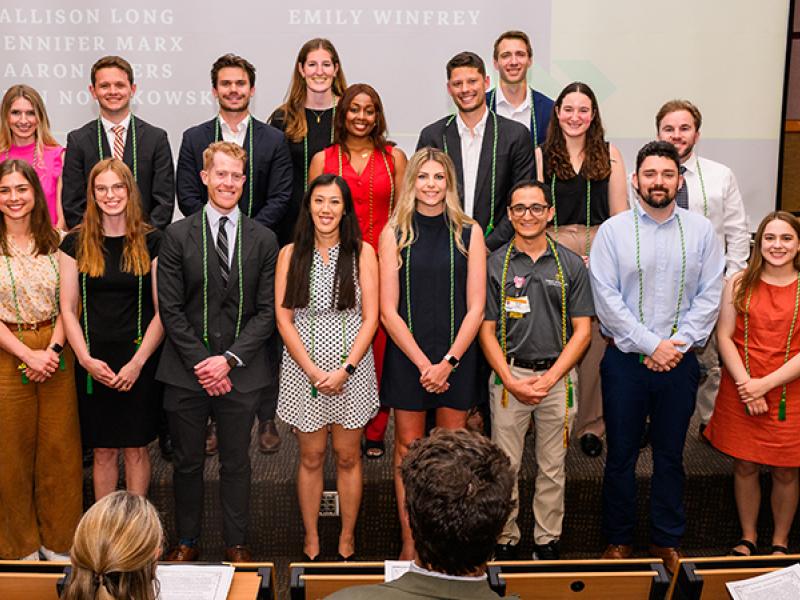
As a nurse educator at Phelps County Regional Medical Center, Sue LaPlante knows the challenges of providing the latest health care training equipment and techniques to professionals in rural areas. She found a solution parked just outside her hospital when her staff participated in a hands-on learning session with the University of Missouri’s new mobile clinical simulation service, Mobile Sim.
“Many of our staff members had valuable ‘a ha’ type moments that I know they will carry forward into their individual practice settings,” LaPlante said. “By participating in this new simulation training, skills like teamwork, situation awareness and decision making were honed.”
The MU School of Medicine and its Russell D. and Mary B. Shelden Clinical Simulation Center, in partnership with Missouri Area Health Education Centers (AHEC), created Mobile Sim in response to the need for interactive and high-tech training resources in rural areas. Mobile Sim has visited more than a dozen institutions across Missouri and served more than 800 people, from high school students interested in medicine to physicians, since it launched April 27, 2011, during a roll-out celebration at the Missouri Capitol.
On board the 30-foot vehicle are three lifelike computerized patient mannequins and virtual reality devices with the ability to simulate more than 110 medical scenarios. Mobile Sim is also equipped with cameras to record participants and data storage devices to capture a variety of information from training sessions. Mobile Sim’s trained staff provides on-site setup and assistance for each session, and patient actors can be employed to make learning experiences even more realistic and effective.
“Especially in rural areas of the state, limited funding can make it challenging for hospitals and clinics to purchase high-tech training equipment,” said Kathleen Quinn, PhD, former director of MU’s Area Health Education Center. “With Mobile Sim’s resources and staff support, we will be able to provide advanced educational resources to a broader audience of health care professionals, which will in turn improve the quality and safety of patient care throughout our state.”
From first-responders and law enforcement, to community college and vocational program students, the training can be tailored to fit the needs of a wide variety of learners. By experiencing hands-on interaction with a realistic “patient,” learners are faced with making decisions and prompted to respond quickly, preparing them for the unexpected.
“This program provides the opportunity for health care providers to practice high-risk patient events in an environment that is controlled and safe,” said Dena Higbee, MU’s clinical simulation center director. “The active training leaves providers better prepared, improves team dynamics found in real health care environments, and encourages students and professionals to become lifelong learners.”
The Mobile Sim training service is supported by a $288,133 grant from the Health Resources and Services Administration. For more information on MU’s clinical simulation training, visit medicine.missouri.edu/sim-center.





